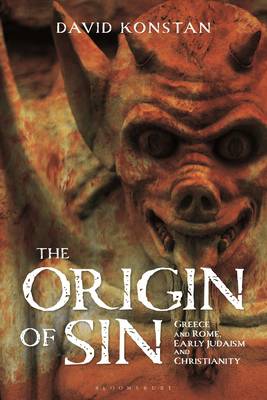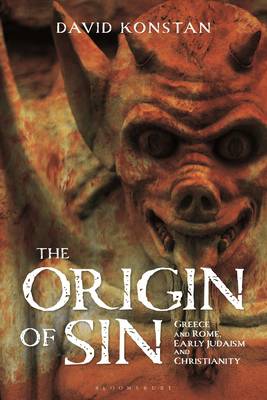
- Afhalen na 1 uur in een winkel met voorraad
- Gratis thuislevering in België vanaf € 30
- Ruim aanbod met 7 miljoen producten
- Afhalen na 1 uur in een winkel met voorraad
- Gratis thuislevering in België vanaf € 30
- Ruim aanbod met 7 miljoen producten
Zoeken
€ 52,45
+ 104 punten
Omschrijving
Where did the idea of sin arise from? In this meticulously argued book, David Konstan takes a close look at classical Greek and Roman texts, as well as the Bible and early Judaic and Christian writings, and argues that the fundamental idea of "sin" arose in the Hebrew Bible and the New Testament, although this original meaning was obscured in later Jewish and Christian interpretations.
Through close philological examination of the words for "sin," in particular the Hebrew hata' and the Greek hamartia, he traces their uses over the centuries in four chapters, and concludes that the common modern definition of sin as a violation of divine law indeed has antecedents in classical Greco-Roman conceptions, but acquired a wholly different sense in the Hebrew Bible and New Testament.
Through close philological examination of the words for "sin," in particular the Hebrew hata' and the Greek hamartia, he traces their uses over the centuries in four chapters, and concludes that the common modern definition of sin as a violation of divine law indeed has antecedents in classical Greco-Roman conceptions, but acquired a wholly different sense in the Hebrew Bible and New Testament.
Specificaties
Betrokkenen
- Auteur(s):
- Uitgeverij:
Inhoud
- Aantal bladzijden:
- 216
- Taal:
- Engels
Eigenschappen
- Productcode (EAN):
- 9781350278592
- Verschijningsdatum:
- 10/03/2022
- Uitvoering:
- Paperback
- Formaat:
- Trade paperback (VS)
- Afmetingen:
- 155 mm x 231 mm
- Gewicht:
- 335 g

Alleen bij Standaard Boekhandel
+ 104 punten op je klantenkaart van Standaard Boekhandel
Beoordelingen
We publiceren alleen reviews die voldoen aan de voorwaarden voor reviews. Bekijk onze voorwaarden voor reviews.








